Milwaukee, WI
2019: Signs of urban blight in Milwaukee’s Northside.
Courtesy of Meredith Watts.
Community scholars take us through the Center Peace blocks of Milwaukee’s Sherman Park neighborhood to describe how residents fight back against historical forms of injustice and disinvestment that have destroyed and demonized their world.
Voice Over: Camille Mays & Reggie Jackson. Contributors: Bella Biwer, Armand Gamboa, Teonna Cooksey, Mallory Zink, Arijit Sen.
Milwaukee’s Northside is segregated and disenfranchised. Mainstream media and city government officials focus on crime, poverty, and blight, making residents of Northside neighborhoods appear as hapless victims. However, this area is racially, economically, and culturally diverse.
After the 1930s, redlining and unjust real estate financing destroyed residential neighborhoods. Between the mid 1960s and the early 1980s, urban renewal razed cultural institutions and community spaces; Government-sponsored divestment and policing reproduced a form of environmental injustice. By the 1980s, industrial jobs disappeared, and African American and working-class residents found themselves trapped in segregated neighborhoods with substandard living conditions.
Local community activists address health, housing, transit, criminal, and food justice issues via urban agriculture projects, reuse of boarded-up homes, and community block-watches. This exhibit documents how small, localized acts of caring and empathy can inspire social action and civic change.
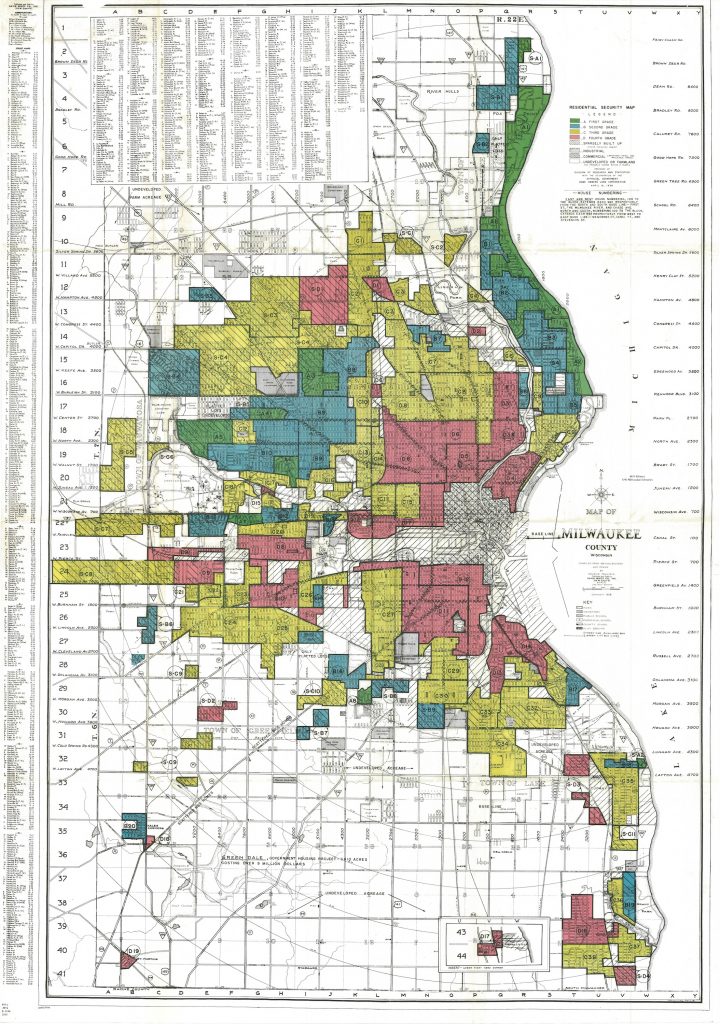
“Redlining” map from 1938 showing neighborhoods (in red) that were subject to discriminatory practices.
Courtesy of University of Wisconsin Milwaukee, American Geographical Society Library.
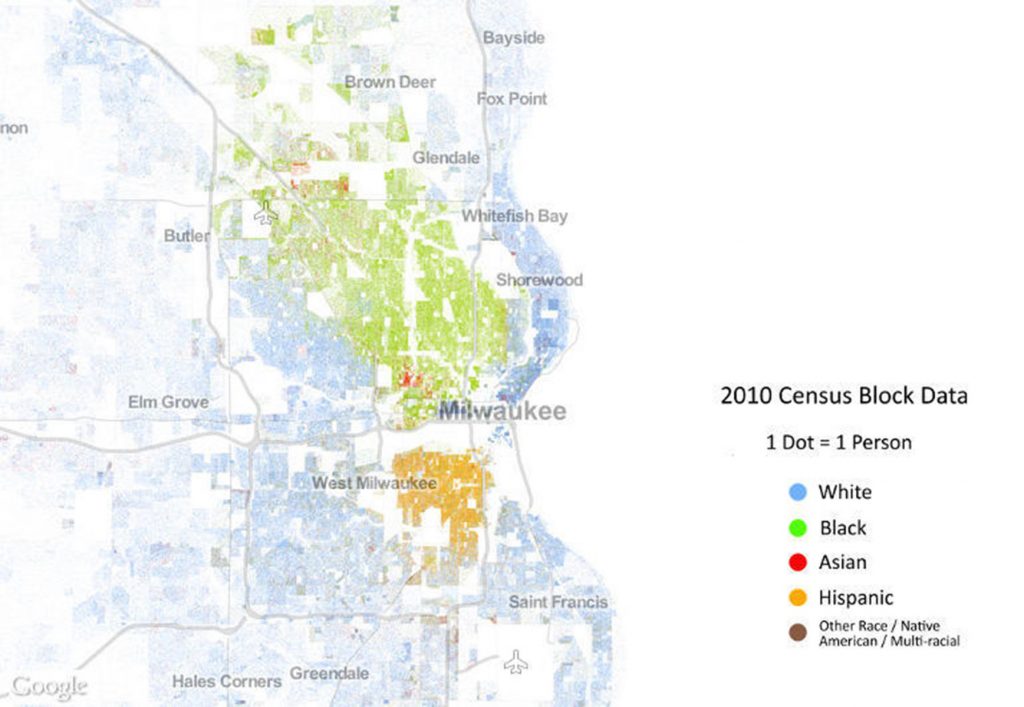
A “Racial Dot Map” based on census data from 2010 shows a segregated city.
© 2013, Weldon Cooper Center for Public Service, Rector and Visitors of the University of Virginia (Dustin A. Cable, creator).
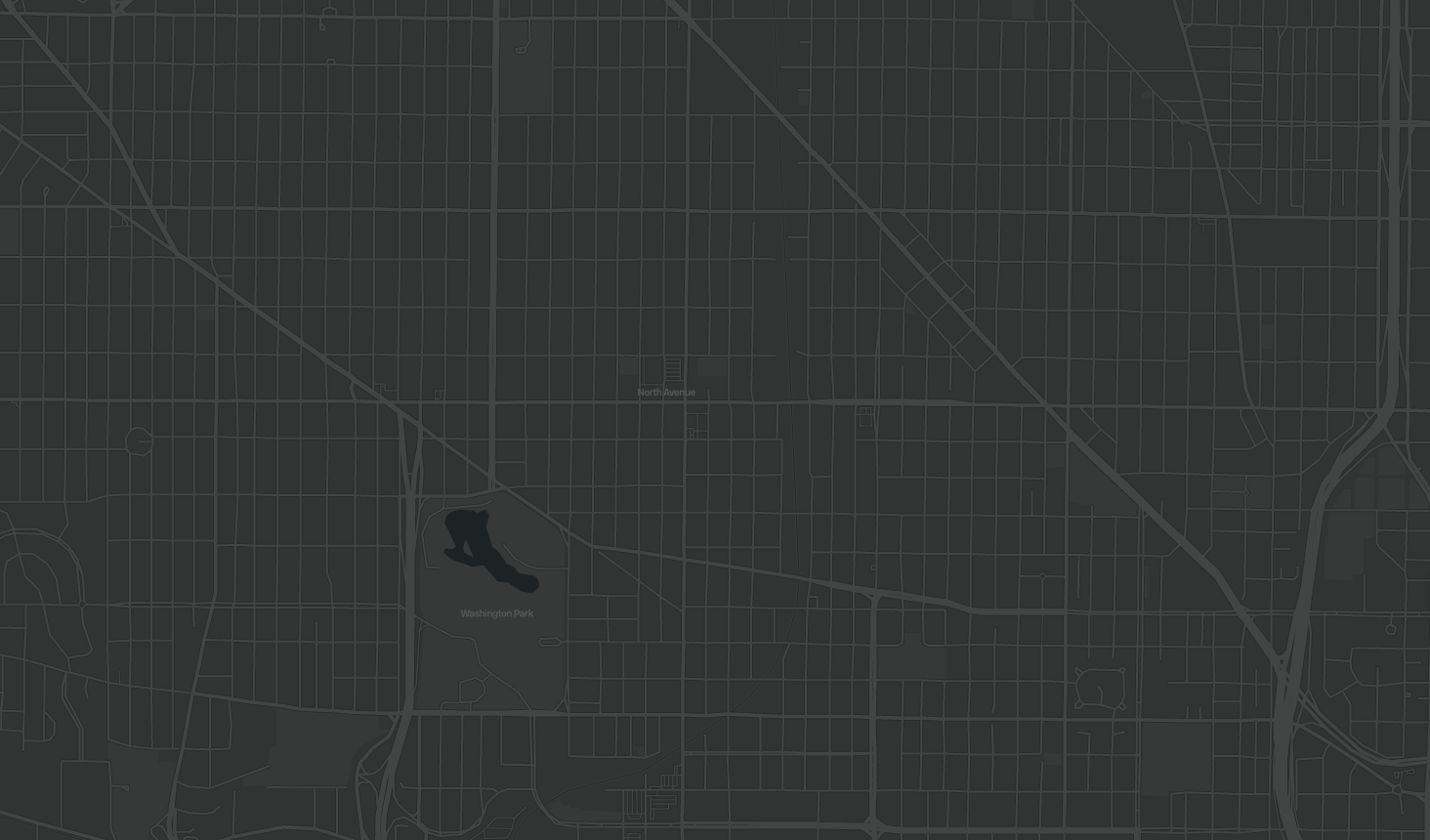
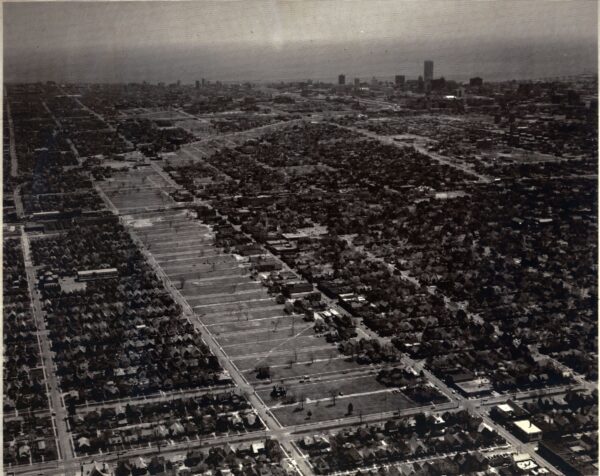
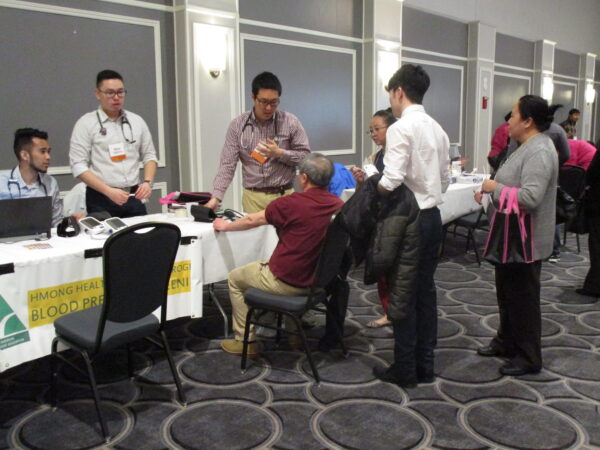

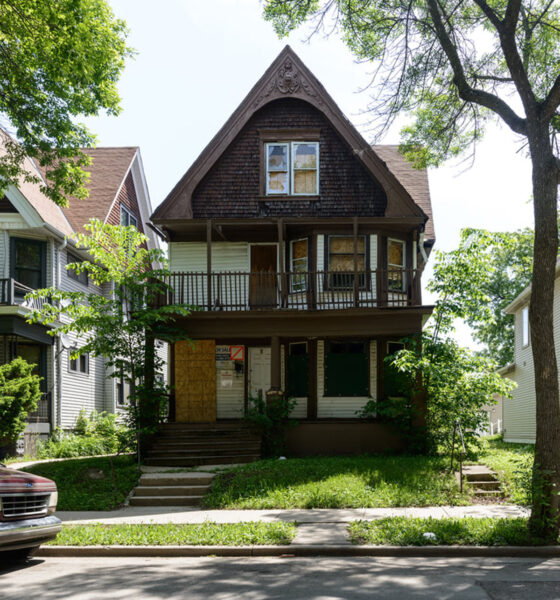
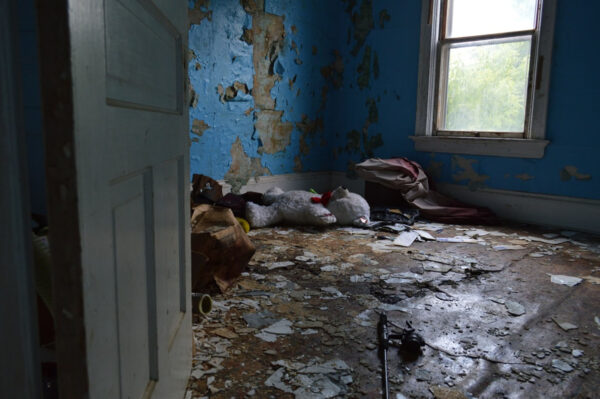
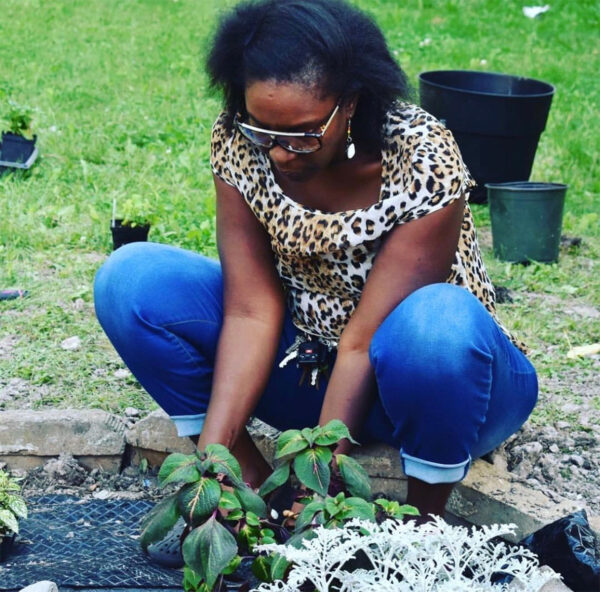
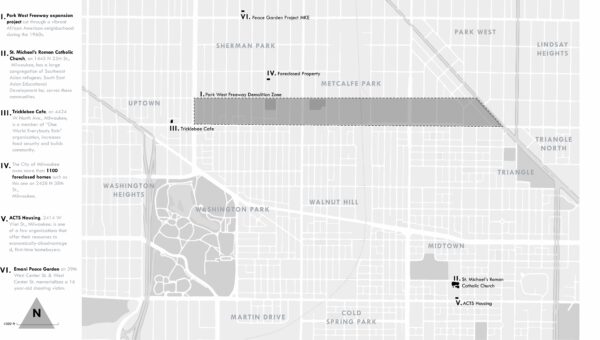
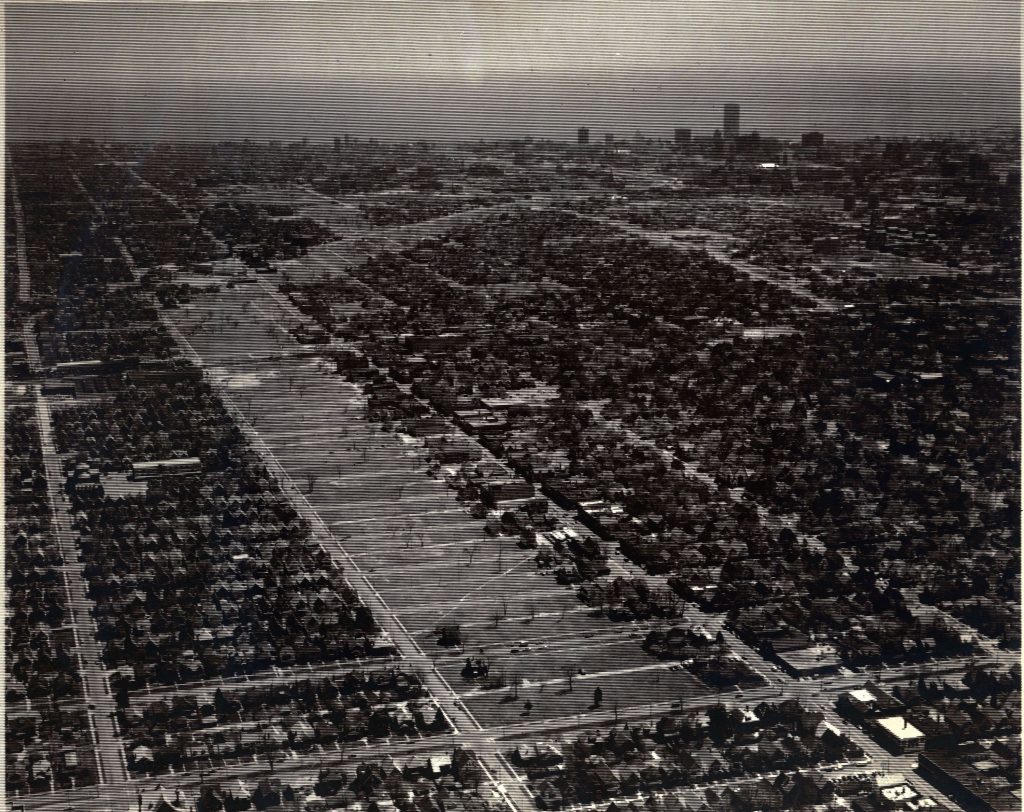
Image: Mid 1970s: Aerial view of a neighborhood demolished to make way for the Park West Freeway, which was never built.
Audio: June 2017: Roy Evans, explaining how the Park West Freeway project destroyed Milwaukee’s Black community.
Image: Courtesy of UW–Milwaukee Libraries, Archives Department (1973).
Audio: Courtesy of Buildings-Landscapes-Cultures Field School, University of Wisconsin–Milwaukee.
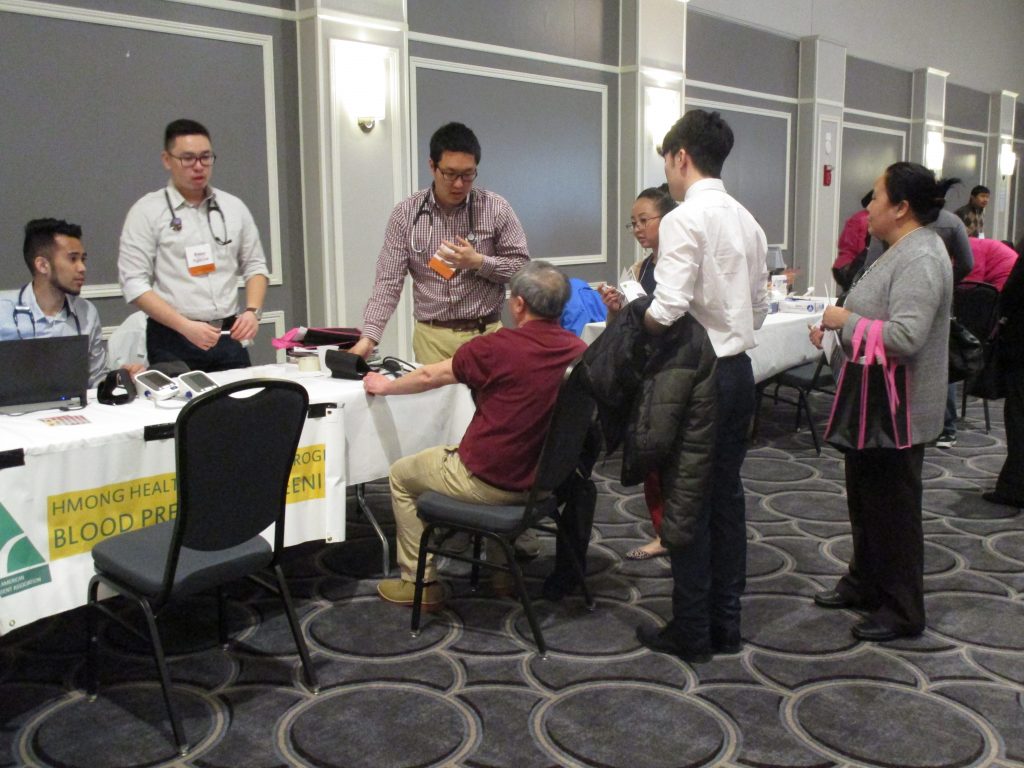
Image: 2019: Grassroots volunteers organize annual conferences to educate Hmong Americans about health.
Audio: April 2019: E. Her Veng, discussing the role of community health workers in the Hmong American community.
Image: Courtesy of Erica Shrader.
Audio: Courtesy of Buildings-Landscapes-Cultures Field School, University of Wisconsin–Milwaukee.

Image: Tricklebee pay-as-you-can Café offers healthy meals in a food desert.
Audio: June 2017: Christie Melby-Gibbon, reflecting on the transformative power of food.
Image: Courtesy of Buildings-Landscapes-Cultures Field School at the University of Wisconsin–Milwaukee.
Audio: Courtesy of Buildings-Landscapes-Cultures Field School, University of Wisconsin–Milwaukee.
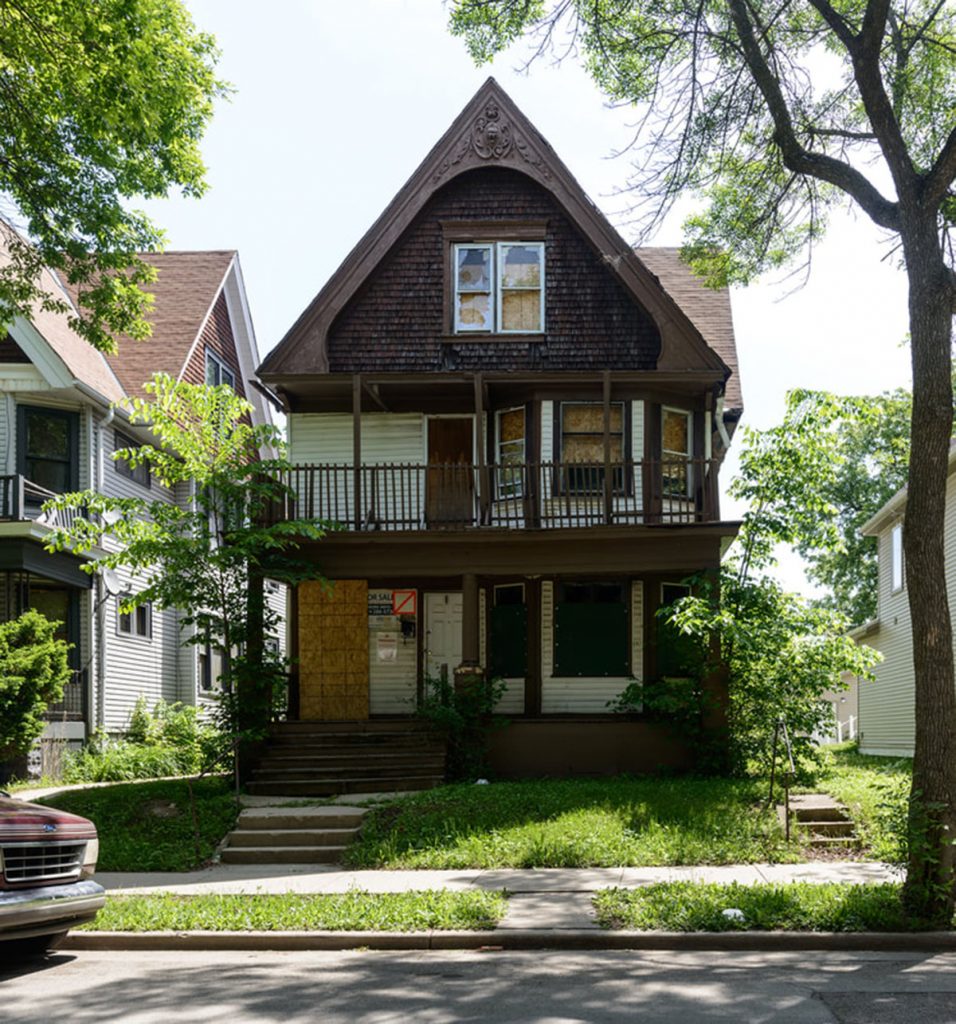
Image: 2017: Evictions and foreclosures, rampant in the Northside, produce blighted vacant buildings.
Audio: June 2017: Tremerell Robinson, explaining how she fights blight with flowers.
Image: Courtesy of Buildings-Landscapes-Cultures Field School at the University of Wisconsin–Milwaukee.
Audio: Courtesy of Buildings-Landscapes-Cultures Field School, University of Wisconsin–Milwaukee.
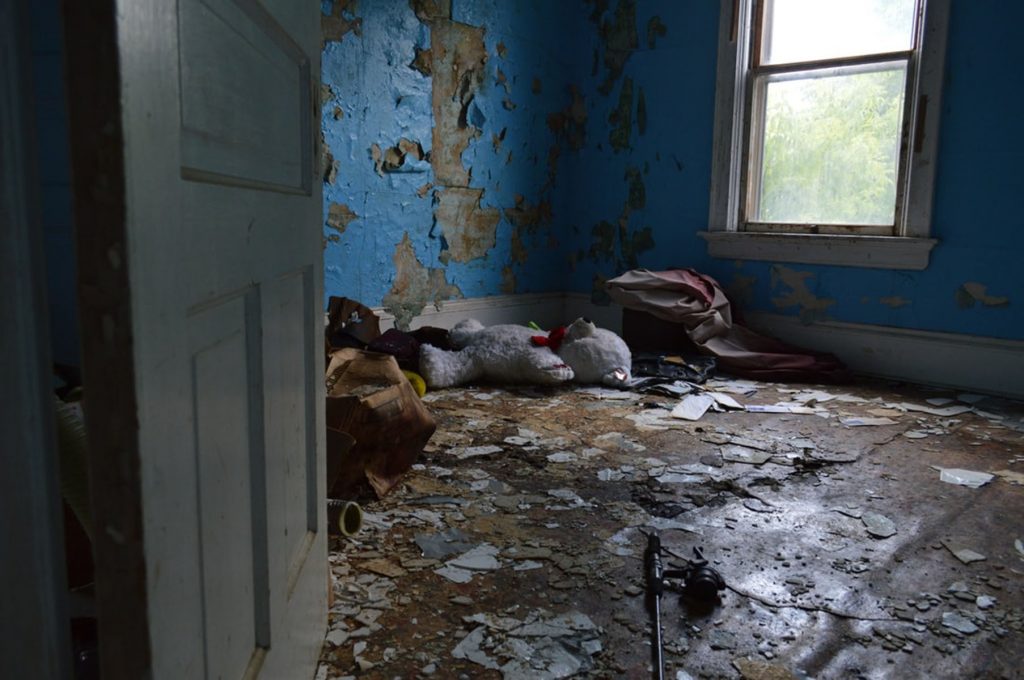
Image: Local nonprofits help marginalized residents purchase and rehab homes like this one.
Audio: June 2016: Sam Smith of ACTS Housing, sharing the impact of housing-rehab projects.
Image: Courtesy of Buildings-Landscapes-Cultures Field School at the University of Wisconsin–Milwaukee.
Audio: Courtesy of Buildings-Landscapes-Cultures Field School, University of Wisconsin–Milwaukee.
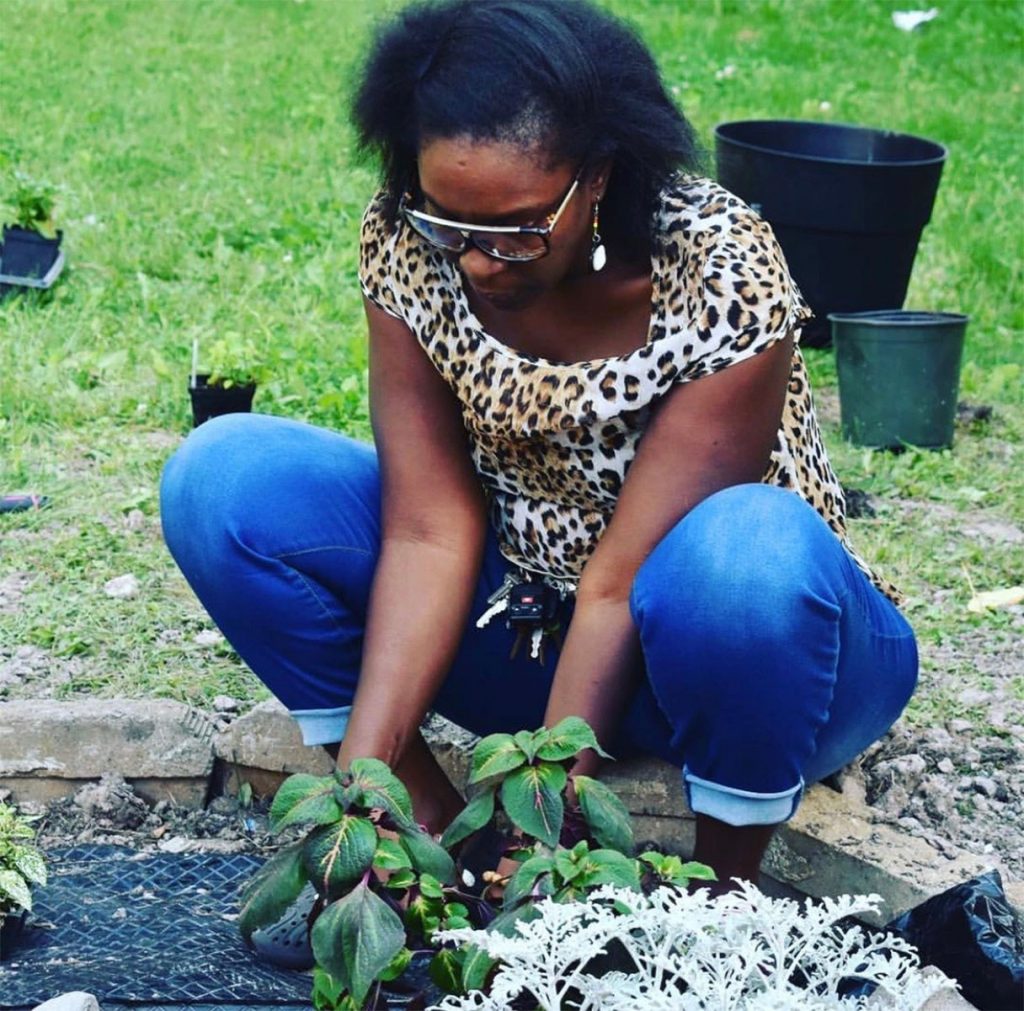
Image: 2018: Peace Garden Project MKE transforms makeshift roadside memorials into sites of beauty.
Audio: September 2018: Camille Mays, recounting the transformative power of Peace Gardens.
Image: Courtesy of Camille Mays, Peace Garden Project MKE.
Audio: Courtesy of Buildings-Landscapes-Cultures Field School, University of Wisconsin–Milwaukee.
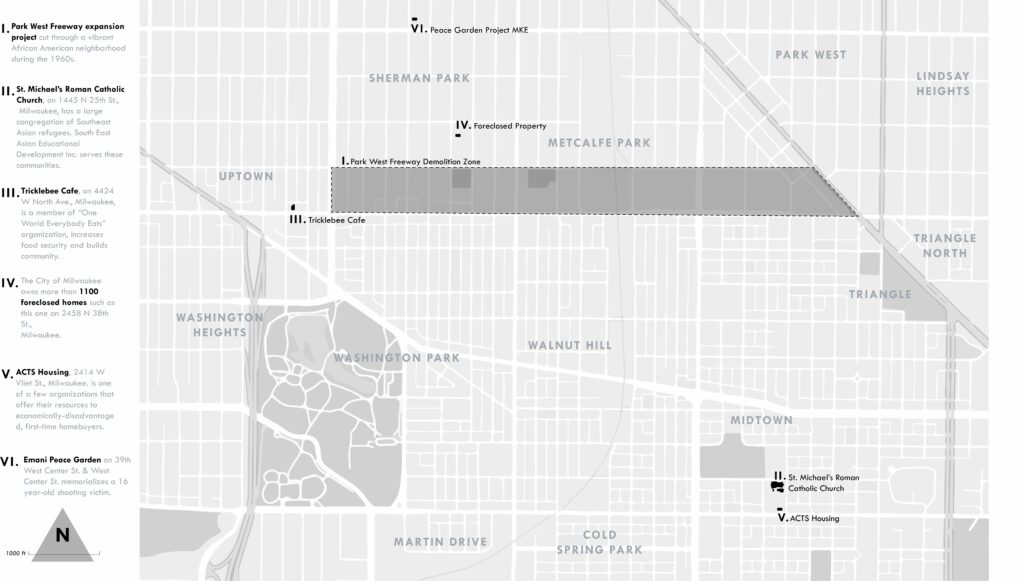
Index map locating sites of 6 stories describing how residents “take back their world” in Milwaukee’s Northside neighborhoods.
Map produced by Armand Gamboa.
Our Point of View
As students, we brought diverse backgrounds and disciplines to look at Milwaukee’s Northside. To untangle a history of discriminatory practices that created this segregated and blighted neighborhood, we spent time in the area examining contemporary conditions. Our community partners helped us understand that the conditions in their neighborhoods were products of a long history of environmental injustice. They explained to us that they actively resist inequality on a daily basis and try to make their world a better place. We realized that, despite government apathy, residents of Northside have always been active agents of change.
—University of Wisconsin-Milwaukee
Camille Mays: Community Activist, Founder of Peace Gardens Project MKE
Mays believes change begins with individual actions. She works to inspire positive action among her neighbors.
Reggie Jackson: Public Historian, Head Griot for America’s Black Holocaust Museum
Jackson addresses the hidden history of present-day segregation and works to inspire the public to acknowledge how policies from the past still affect the city today.
Mayhoua Moua: Executive Director of Milwaukee Consortium for Hmong Health (former Executive Director of Southeast Asian Educational Development Inc.)
Moua helps Southeast Asian refugees adjust to life in Milwaukee and find access to health care, education, and employment.
—Peace Garden Project MKE